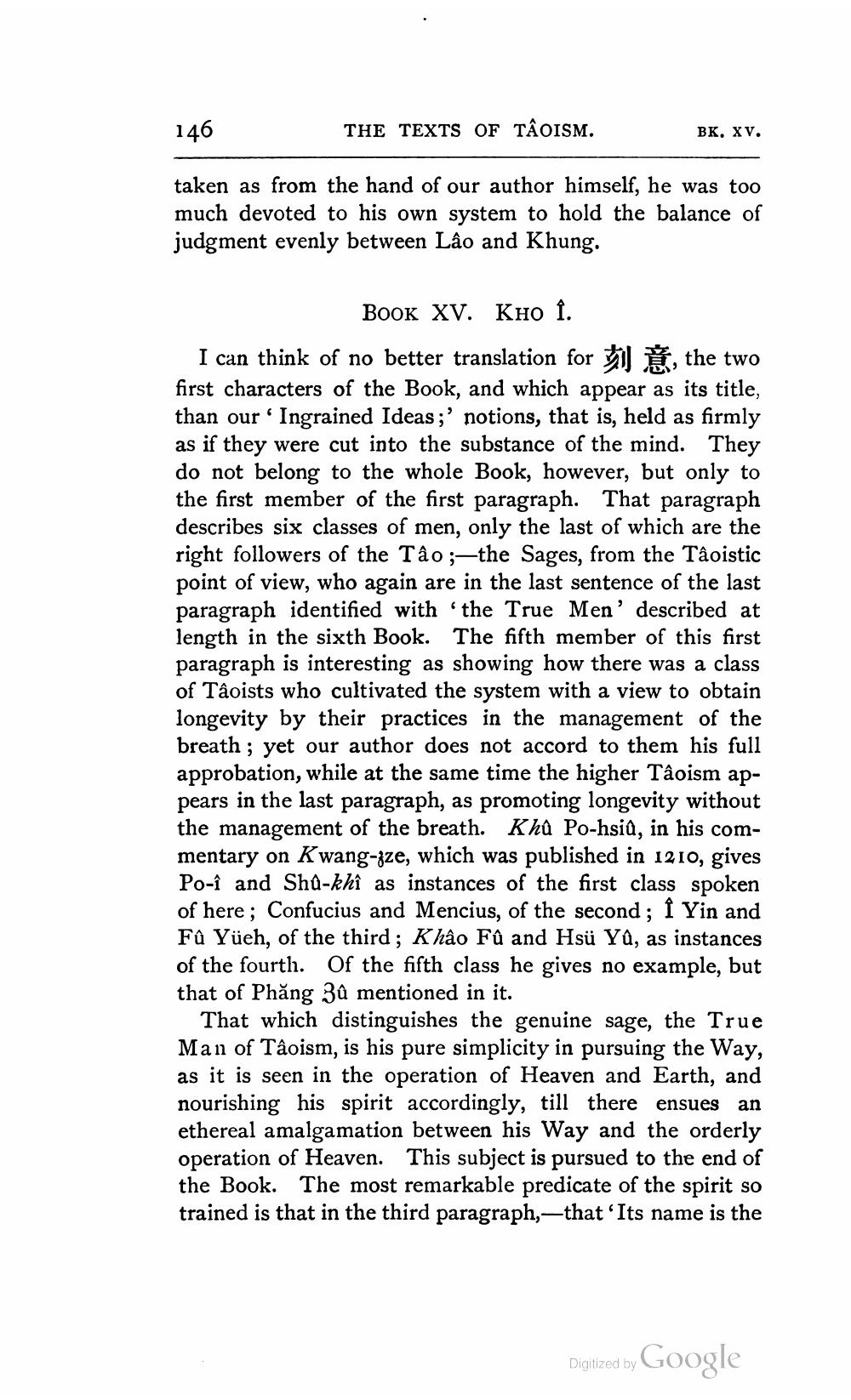________________
146
THE TEXTS OF TÂOISM.
BK, XV.
taken as from the hand of our author himself, he was too much devoted to his own system to hold the balance of judgment evenly between Lâo and Khung.
BOOK XV. Kho Î. I can think of no better translation for the two first characters of the Book, and which appear as its title, than our 'Ingrained Ideas;' notions, that is, held as firmly as if they were cut into the substance of the mind. They do not belong to the whole Book, however, but only to the first member of the first paragraph. That paragraph describes six classes of men, only the last of which are the right followers of the Tâo ;—the Sages, from the Tâoistic point of view, who again are in the last sentence of the last paragraph identified with the True Men'described at length in the sixth Book. The fifth member of this first paragraph is interesting as showing how there was a class of Taoists who cultivated the system with a view to obtain longevity by their practices in the management of the breath; yet our author does not accord to them his full approbation, while at the same time the higher Taoism appears in the last paragraph, as promoting longevity without the management of the breath. Khû Po-hsiū, in his commentary on Kwang-zze, which was published in 1210, gives Po-î and Shù-khî as instances of the first class spoken of here; Confucius and Mencius, of the second; Î Yin and Fû Yüeh, of the third ; Khâo Fû and Hsü Ya, as instances of the fourth. Of the fifth class he gives no example, but that of Phăng Zû mentioned in it.
That which distinguishes the genuine sage, the True Man of Taoism, is his pure simplicity in pursuing the Way, as it is seen in the operation of Heaven and Earth, and nourishing his spirit accordingly, till there ensues an ethereal amalgamation between his Way and the orderly operation of Heaven. This subject is pursued to the end of the Book. The most remarkable predicate of the spirit so trained is that in the third paragraph,—that 'Its name is the
Digitized by Google




